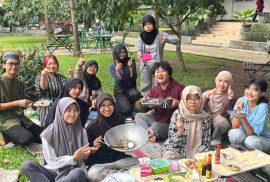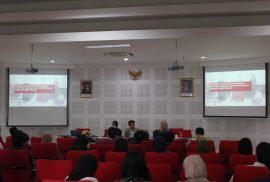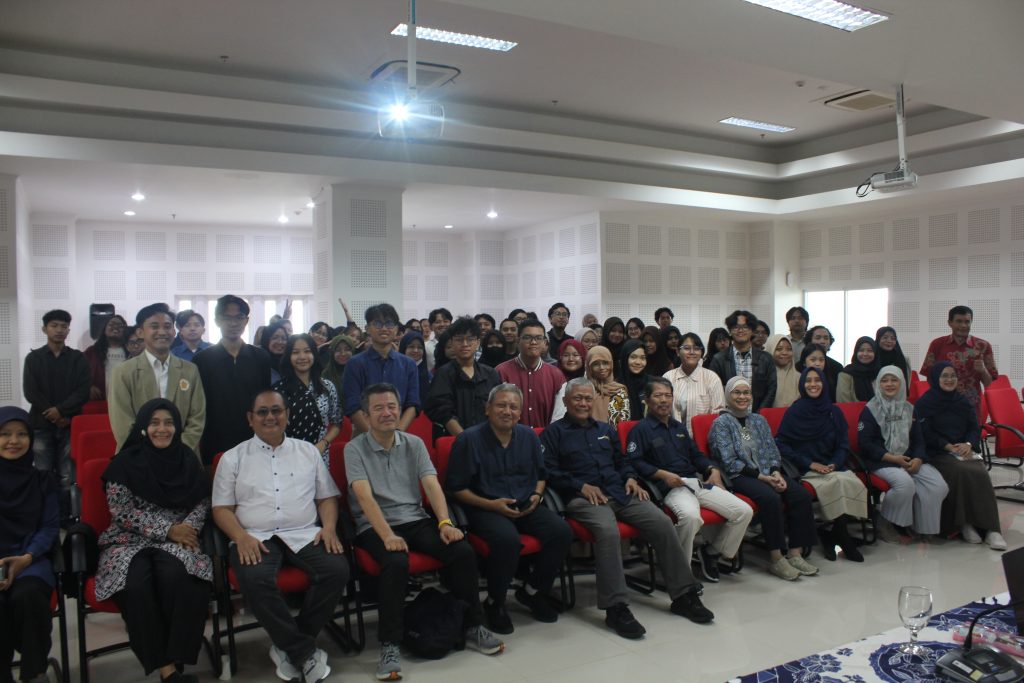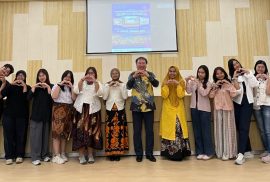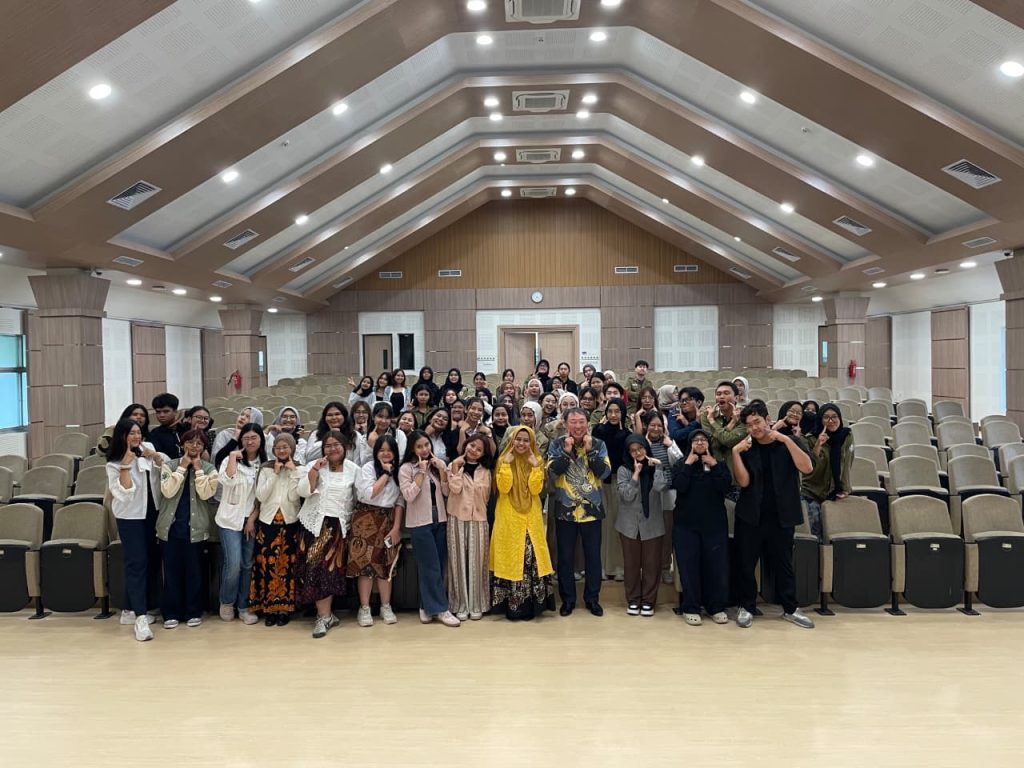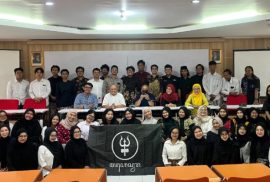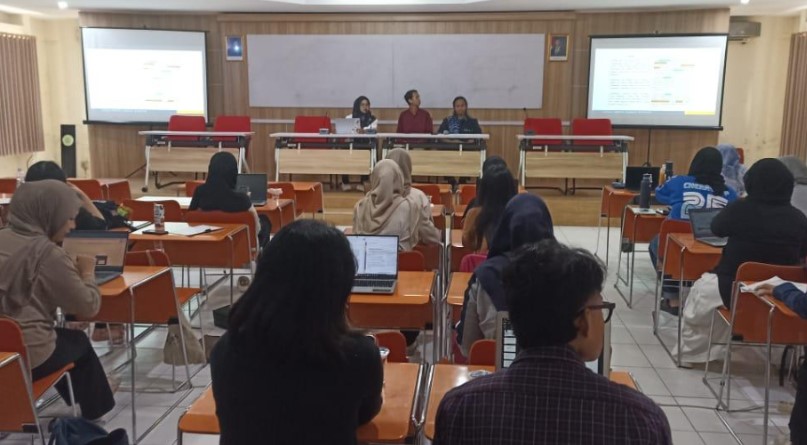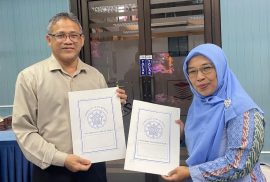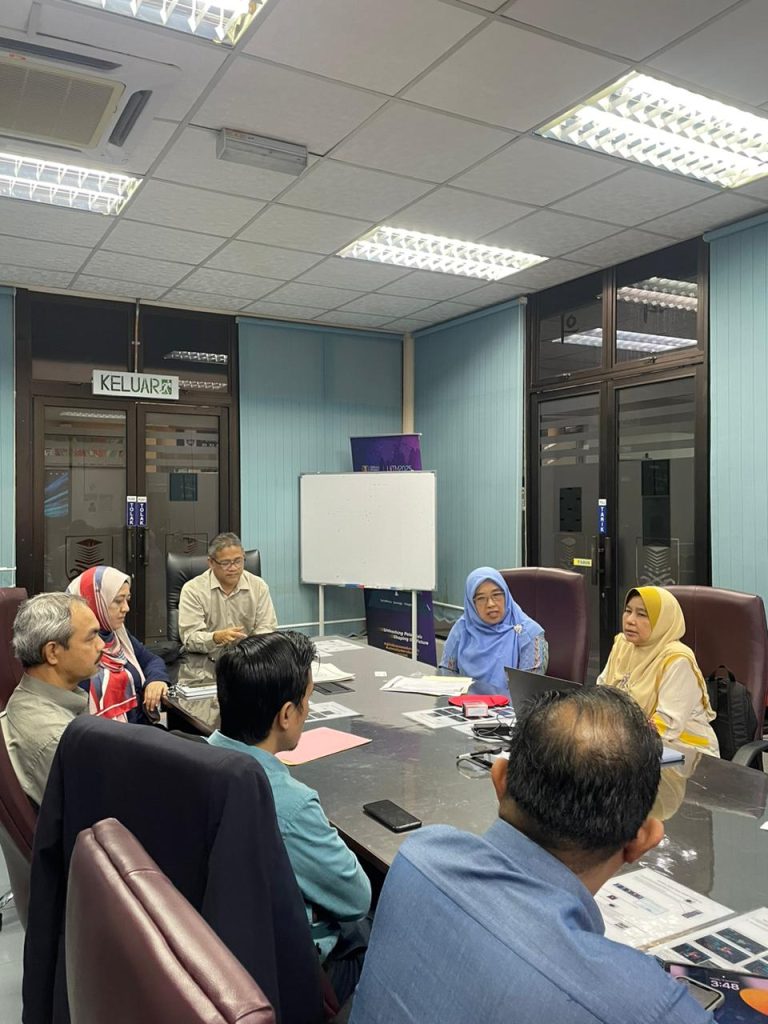The Japanese Language and Culture Student Association (HIMAJE), Faculty of Cultural Sciences, Universitas Gadjah Mada, through its culinary community Hiryou Aikai, held a group cooking session to celebrate the completion of the End-of-Semester Final Exams. The activity took place on 20 November 2025, from 13:00 to 15:00 WIB, at the Soegondo Building corridor area, and was designed in a relaxed, picnic-style setting as a refreshing moment of togetherness after the exam period.
Hiryou Aikai serves as a platform for HIMAJE members who have an interest and talent in cooking. Through this community, members can channel their culinary creativity while improving their cooking skills in a collaborative and enjoyable atmosphere. Activities like this also help strengthen connections among students through simple yet meaningful shared experiences.
In this session, participants cooked gyudon, a popular Japanese dish consisting of a bowl of warm rice topped with thinly sliced beef and onions simmered in a sweet and savory sauce. The cooking process was carried out together—from ingredient preparation to plating—creating a warm, lively, and enthusiastic atmosphere throughout the event.
This cooking activity not only provided a fun way to unwind after final exams but also encouraged students to learn through hands-on experience while fostering a supportive community environment. Through similar initiatives, Hiryou Aikai is expected to continue serving as a creative space that enriches students’ organizational experience and promotes positive activities that support well-being and personal development within HIMAJE UGM.
Author: Barra Taura Nursaid

